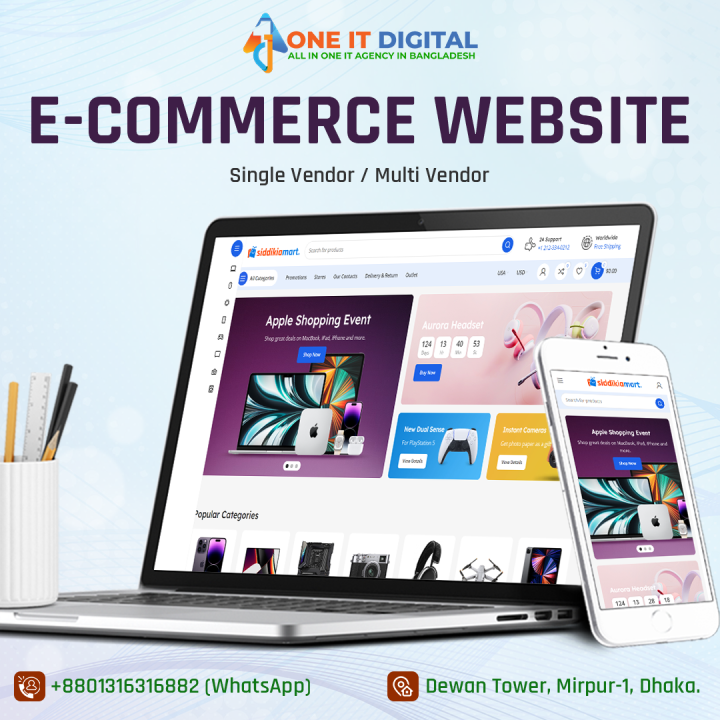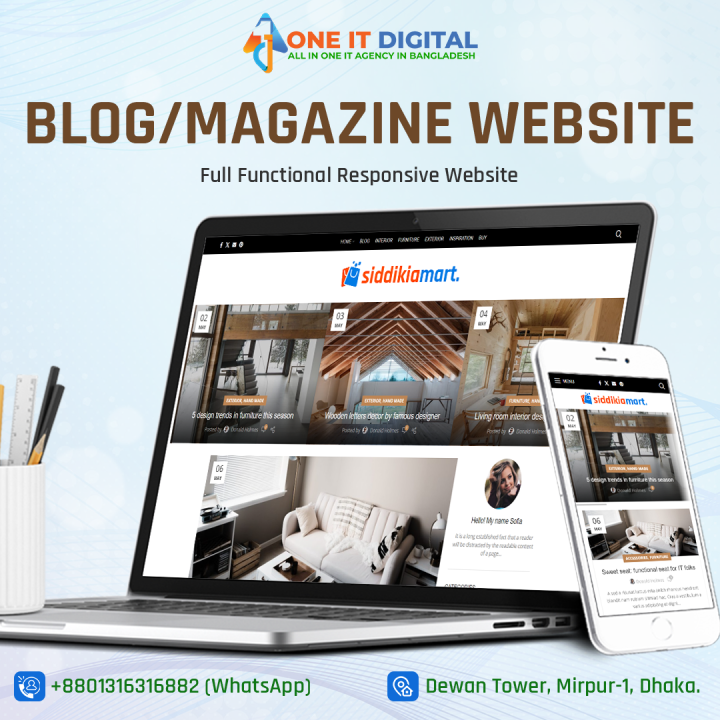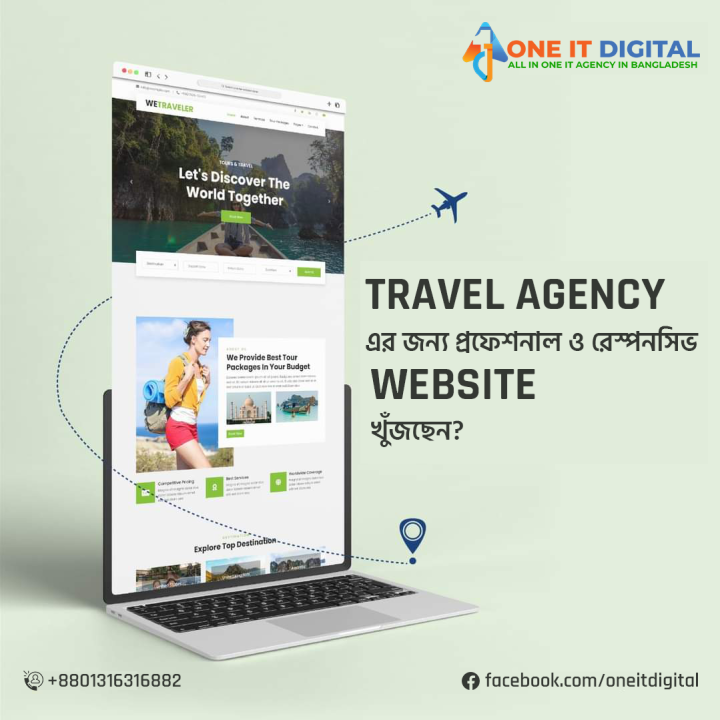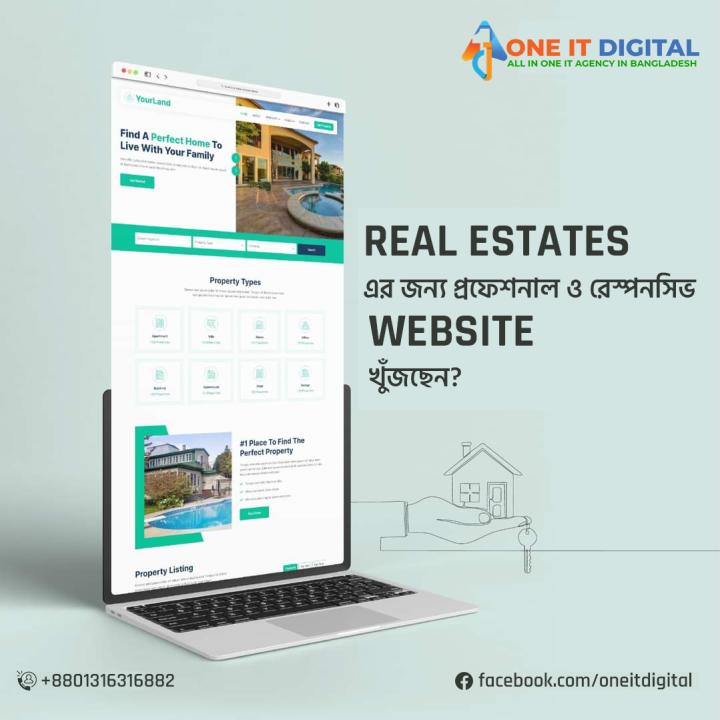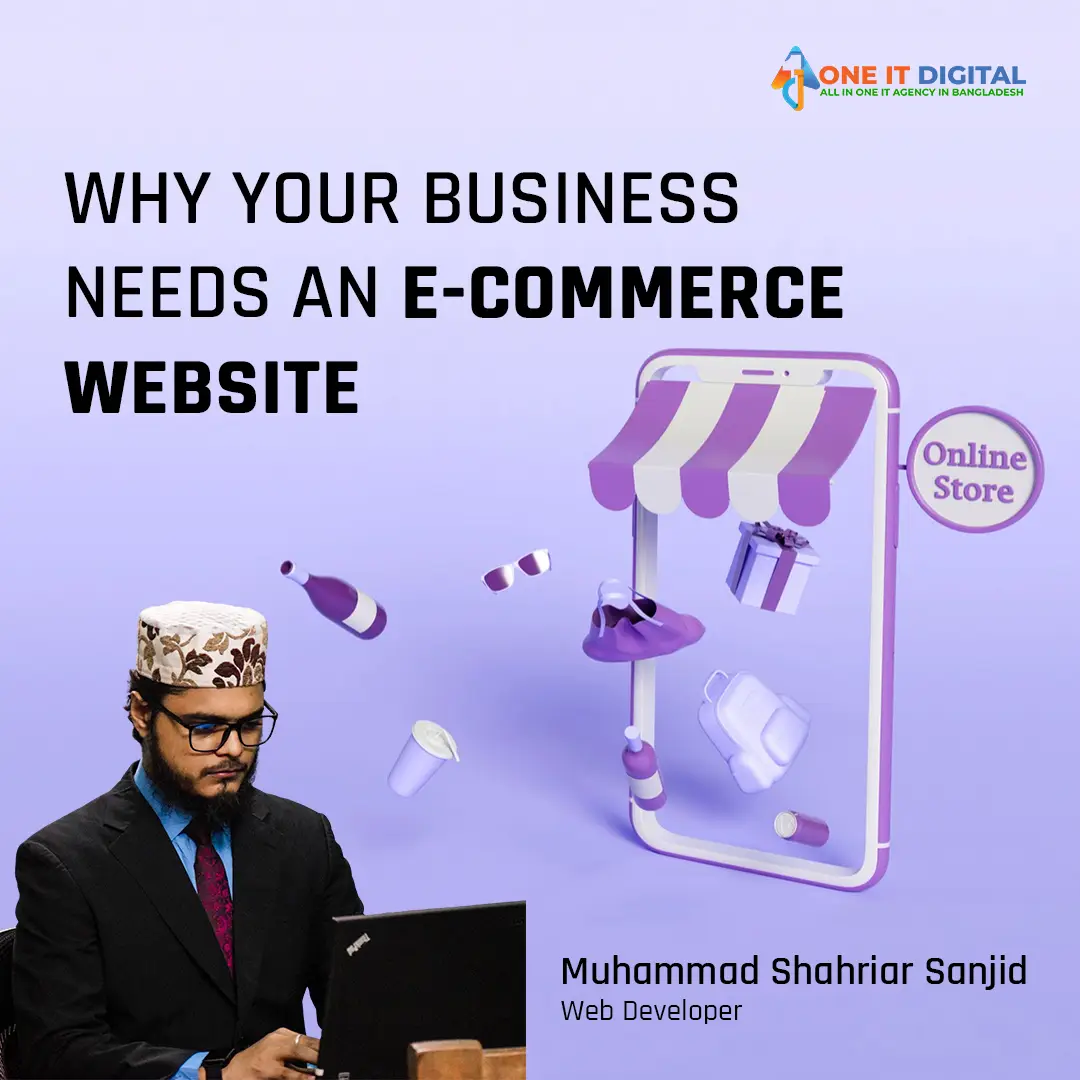Why Your Business Needs an E-Commerce Website: The Key to Growth and Success
In today’s fast-paced, digital-first world, consumers are increasingly turning to online platforms for their shopping needs. Whether you sell products, services, or digital content, having an e-commerce website is no longer just a luxury—it’s a necessity for businesses of all sizes. If you haven’t yet embraced e-commerce, now is the time to take your business online and tap into the immense potential of the global marketplace.
Here’s why having an e-commerce website is critical to the growth and long-term success of your business.
1. Reach a Global Audience
An e-commerce website allows your business to go beyond the limitations of a physical store. With an online platform, you can sell to customers not just in your local area, but across the globe. No matter where your customers are located, they can easily browse, shop, and place orders on your site. This opens up an entirely new world of opportunities and allows you to tap into markets you may never have considered before.
For example, a small boutique selling handmade goods in a local market can suddenly reach buyers in New York, London, or Tokyo, all thanks to the global reach of an e-commerce website.
2. Lower Operating Costs
Running a traditional brick-and-mortar business comes with numerous overhead expenses—rent, utilities, staff wages, and more. E-commerce, by contrast, allows you to significantly reduce these costs. You can run your business with fewer employees, lower storage needs, and no rent for expensive storefronts. All you need is a reliable website, a payment gateway, and an efficient shipping process.
With lower operating costs, you can reinvest your savings into marketing, product development, or customer service, further boosting your business’s growth.
3. Operate 24/7
One of the most significant advantages of an e-commerce website is that it allows your business to operate 24/7. Unlike a physical store that has fixed hours, your online store is always open. This means that customers can shop whenever they want, whether it’s during the day, at midnight, or even on weekends and holidays. By having an e-commerce website, you can capture sales around the clock, significantly increasing your revenue potential.
This constant availability also enhances customer satisfaction. Busy customers appreciate the flexibility of being able to shop at their convenience, which in turn builds loyalty to your brand.
4. Better Customer Insights and Personalization
An e-commerce website offers valuable insights into customer behavior and preferences. Tools like Google Analytics, heat maps, and customer tracking features give you detailed data on who is visiting your site, what products they are browsing, how long they stay on each page, and which items they purchase.
This data allows you to understand your customers better and make informed business decisions. You can tailor your product offerings, improve the user experience, and run targeted marketing campaigns based on customer preferences. Personalization features, such as product recommendations, abandoned cart follow-ups, and personalized discounts, further enhance the shopping experience and increase sales.
5. Scalability
An e-commerce website provides an ideal platform for scaling your business. As your sales grow, you can easily add new products, expand into different markets, or even offer new services without the limitations of physical space. With the right e-commerce tools in place, scaling your business is more efficient, allowing you to meet the growing demands of your customers without the need for significant upfront investments.
Whether you’re handling a few hundred or thousands of orders a day, e-commerce platforms allow you to adjust seamlessly to the demands of your customers, ensuring smooth operations even during peak seasons or flash sales.
6. Digital Marketing Opportunities
Having an e-commerce website opens up endless opportunities for digital marketing. You can run highly targeted campaigns on platforms like Google, Facebook, and Instagram, driving traffic directly to your site. Tools like search engine optimization (SEO), pay-per-click (PPC) advertising, social media marketing, and email campaigns can be used to attract and convert visitors into paying customers.
Unlike traditional marketing methods that are expensive and often difficult to measure, digital marketing allows you to reach specific audiences with precision and track the results of your campaigns in real-time. This means you can continuously refine your strategy to maximize return on investment (ROI).
7. Improved Customer Service
With an e-commerce website, you can offer better customer service by providing easy access to information, quick communication, and support options. Your site can include FAQs, product guides, return policies, and live chat features, making it easy for customers to find answers to their questions without needing to contact you directly.
Moreover, automated services like email confirmations, shipping updates, and product availability notifications enhance the customer experience, keeping buyers informed and satisfied throughout their shopping journey.
8. Competitive Advantage
In many industries, having an e-commerce website is now the standard. If your competitors are already selling online and you’re not, you’re missing out on a significant portion of the market. Customers expect the convenience of online shopping, and businesses that don’t meet these expectations are at risk of falling behind.
By building a strong e-commerce presence, you not only keep up with competitors but also have the chance to outperform them. A well-designed, user-friendly site with a smooth purchasing process can set you apart from others in your industry, earning you loyal customers and driving repeat sales.
9. Building Customer Trust and Brand Authority
An e-commerce website allows you to showcase your products and services in a way that builds trust with your customers. By providing detailed product descriptions, high-quality images, customer reviews, and transparent pricing, you give customers confidence in their purchasing decisions.
Additionally, your website can serve as a hub for your brand’s content. You can include blog posts, guides, videos, and other educational materials that establish your business as an authority in your industry. This not only improves customer trust but also enhances your SEO, driving more organic traffic to your site.
10. Pandemic-Proof Your Business
The COVID-19 pandemic highlighted the vulnerability of offline businesses that relied solely on physical storefronts. Many companies without an e-commerce option struggled to maintain sales during lockdowns and restrictions. Those with online platforms, however, were able to continue operating and serving their customers.
Having an e-commerce website makes your business more resilient to external disruptions, such as economic downturns, natural disasters, or global pandemics. It provides a safety net that ensures your business can continue generating revenue even in challenging times.
Conclusion
An e-commerce website is essential for businesses looking to grow, scale, and succeed in the digital age. With the ability to reach a global audience, lower operating costs, offer 24/7 service, and leverage data-driven marketing strategies, an e-commerce site offers a competitive edge that offline businesses simply cannot match.
If your business hasn’t yet made the shift to e-commerce, now is the time to do so. Whether you’re starting from scratch or looking to enhance your current website, investing in an e-commerce platform will unlock new growth opportunities and future-proof your business for the ever-evolving online landscape.


